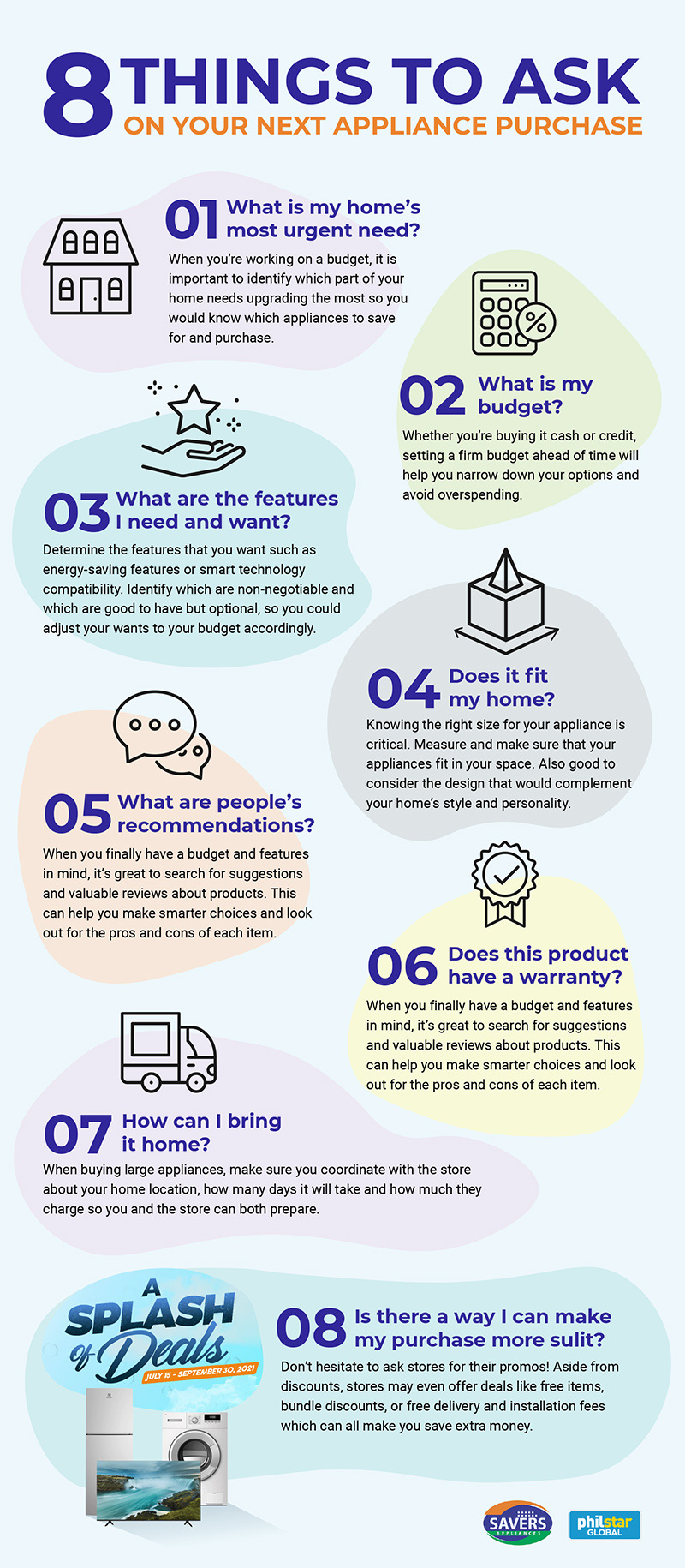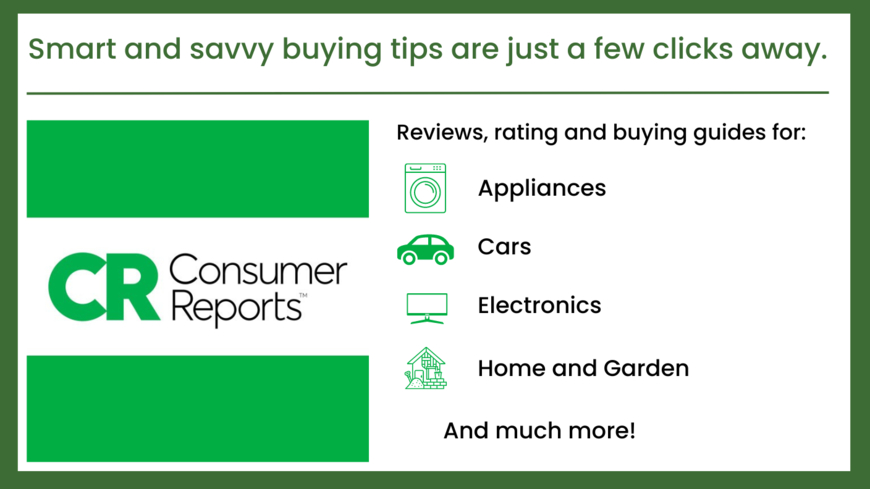Before buying appliances, consider energy efficiency and the appliance’s size relative to your space. Assess the appliance’s functionality and compatibility with your needs.
Embarking on the quest to purchase home appliances can be both exciting and overwhelming. High-quality appliances are an investment, promising to ease daily tasks and enhance your living space. To navigate this purchase, prioritize functionality, space requirements, and energy consumption—factors that directly impact utility bills and environmental footprint.
It’s essential to research brands for reliability and post-purchase support, like warranty and customer service. User reviews offer valuable insights into long-term performance, often highlighting pros and cons that aren’t evident in product specifications. While aesthetic appeal may sway your decision, choosing appliances that align seamlessly with your habits and home layout is key to long-term satisfaction. Remember, this blend of practical considerations ensures you make well-informed decisions for appliances that integrate into your lifestyle with grace and efficiency.
Crucial Factors In Appliance Selection
Choosing a new appliance is a big decision. Think about your needs, kitchen size, and the environment. Smart picks save money, space, and the planet.
Size And Space Considerations
Before anything else, consider the size. Measure your space. Check appliance dimensions. Ensure it fits. Don’t forget about door opening space. Also, think transport. Will it pass through your door?
- Measure twice: Note the width, depth, and height of your space.
- Doorways count: Make sure the appliance can enter your home easily.
- Ventilation space: Some appliances need extra space for air flow.
Energy Efficiency And Sustainability
Appliances use a lot of energy. Choose energy-efficient models. Look for ENERGY STAR® labels. They use less energy. This is good for Earth and lowers your bills.
| Feature | Benefit |
|---|---|
| ENERGY STAR® Certified | Reduces electricity costs and carbon footprint. |
| Eco-friendly materials | Supports sustainability and reduces waste. |
Remember: The initial cost is one part. Running costs are just as crucial. Energy-efficient appliances pay off over time.

Credit: www.philstar.com
Comparing Appliance Brands
Choosing appliances can be a daunting task. With a wide range of brands available, it’s vital to compare based on quality, features, and value. Let’s dive into what sets appliance brands apart, focusing on reputation, reviews, warranty, and service.
Reputation And Reviews
A brand’s reputation often reflects its reliability. Researching online reviews can reveal much about product performance and customer satisfaction. Websites like Consumer Reports offer unbiased ratings, as do customer feedback sections on retailer websites. Look for patterns in reviews; multiple mentions of the same issue can indicate a red flag.
- Consistency: Brands that consistently deliver quality become household names.
- Innovation: Check if the brand often introduces new and useful features.
- Customer Feedback: Search for feedback across different platforms for a balanced view.
Warranty And Service
The length and scope of warranty differ among brands and might reflect the manufacturer’s confidence in their appliance. A strong warranty can save on future repair costs. Additionally, consider the brand’s service network. Prompt and efficient service contributes greatly to overall customer satisfaction.
| Brand | Warranty Length | Scope of Warranty |
|---|---|---|
| Brand A | 1 Year | Comprehensive |
| Brand B | 3 Years | Limited |
| Brand C | 5 Years | Parts Only |
Before making a purchase, review the warranty terms. Understand what’s covered. Check for information on:
- Length of coverage: Longer warranties can offer peace of mind.
- What’s covered: Some warranties cover parts, others labor or both.
- Service network: Ensure there are service centers nearby.
Budgeting For Home Appliances
Smart budgeting forms the backbone of wise appliance purchases. Whether you’re moving into a new space or upgrading your home, understanding the financial aspect is crucial. Let’s explore how to balance cost and quality, and what financing options are available to bring home the appliance you need without breaking the bank.
Cost Vs. Quality Balance
Finding the sweet spot between cost and quality can be tricky. High-quality appliances often come with a higher price tag but tend to last longer and perform better. On the flip side, budget-friendly options may save you money upfront but could incur more costs over time due to repairs or early replacements. Consider these factors:
- Longevity: Higher quality often means longer life for the appliance.
- Warranty: A good warranty covers any unexpected mishaps.
- Energy Efficiency: Appliances that use less energy save you money.
Think about the long-term benefits versus the initial cost. Sometimes, spending more now can save you money later.
Financing Options
Many stores offer financing options for your home appliances. These can include:
- Store Credit: Some retailers provide credit cards with benefits.
- Payment Plans: Spread out the cost over time with monthly payments.
- Leasing: Rent the appliance with the option to buy later.
Always read the fine print. Look for hidden fees or high-interest rates. Be sure the monthly payments fit your budget. Avoid financial strain by choosing the right plan for your needs.

Credit: www.wired.com
The Role Of Smart Technology
Welcome to the future of home convenience, where smart technology reigns supreme. Before cashing out on new appliances, understanding the smart tech that powers them is key. Smart home devices offer incredible benefits, and here’s what to look out for.
Connectivity Features
Appliances are not lone wolves anymore. They now connect and communicate, changing how we manage our homes. Look for Wi-Fi and Bluetooth capabilities in your new appliance. This ensures seamless control from your smartphone or tablet.
- Remote Access: Control devices from anywhere.
- Compatibility: Check the appliance syncs with your smart home ecosystem.
- Updates: Ensure the device can receive firmware updates over Wi-Fi.
The Internet Of Things (iot) Impact
IoT transforms everyday appliances into a cohesive network. The benefits are enormous.
| Benefit | Description |
|---|---|
| Efficiency | Devices optimize their functions to save time and energy. |
| Customization | Personalize settings for a tailored experience. |
| Monitoring | Track usage and maintenance with ease. |
Smart technology is vastly improving the appliance landscape. Leverage IoT and connectivity features to enhance your home life. Choose smart appliances to join the tech-forward bandwagon.
Timing Your Purchase Wisely
Timing Your Purchase Wisely is key when buying appliances.
Smart shoppers know that the best deals on appliances are not found just any day of the year.
Deep discounts and savings are available, especially if you know when to look.
Understand the sales cycle and new release schedules, to save big.
Seasonal Sales And Discounts
Retailers often slash prices during certain times of the year.
- Holiday Weekends: Memorial Day, Labor Day, and Black Friday are notorious for big sales.
- End of the Year: Post-holiday sales clear out inventory before the year ends.
- Back-to-School: Look for sales in late summer, especially on smaller appliances for dorms and apartments.
Set reminders for these periods to snag the best deals.
New Model Releases
Manufacturers unveil new appliances at specific times.
- Refrigerators: New models hit stores in the spring.
- Washers and Dryers: New launches are usually in the fall.
- Kitchen Appliances: The latest designs come in September and October.
Shop the preceding months for markdowns on last year’s models.
Evaluating Features And Usability
Understanding the features and usability of appliances makes a big difference. It ensures you make smart choices. This section dives into what shoppers need to evaluate before purchasing. Let’s explore must-have features versus the nice-to-have extras. We will also look at how user-friendly these appliances are.
Must-have Vs. Nice-to-have
Essential features are the backbone of any appliance. These are non-negotiable for functionality. On the other hand, extra features often enhance convenience. They aren’t crucial but can improve your experience.
- Must-Have: Refrigerator with energy efficiency ratings, a stove with variable temperature settings.
- Nice-to-Have: Refrigerator with an ice maker, a stove with a self-cleaning function.
User-friendliness
The ease of using an appliance is key. Simple controls mean less stress. Look for appliances with intuitive interfaces. Clear displays and straightforward instructions save time.
| Appliance | User-Friendly Feature |
|---|---|
| Washing Machine | Touchpad controls |
| Oven | Pre-programmed settings |
Appliance Lifespan And Maintenance
Understanding the lifespan and maintenance requirements of appliances is key. It ensures that your investment stands the test of time. Here we dive into durability and ease of repair—vital factors shaping the true cost of appliances.
Expected Durability
Knowing how long an appliance should last helps plan for future costs. Each type of appliance has an average lifespan. For instance, refrigerators typically last 10-15 years, while washers might serve you for 8-12 years. Select products with proven long-term performance and a reputable longevity record.
Add more rows as needed| Appliance | Average Lifespan (Years) |
|---|---|
| Refrigerator | 10-15 |
| Washing Machine | 8-12 |
Ease Of Repair
Select appliances with accessible parts and service information. Look for brands with wide service networks and available spare parts. This ensures you can repair them promptly. Conduct a quick search online for customer service records. Brands with positive reviews in customer support usually mean less hassle for maintenance.
- Consider availability of certified repair technicians.
- Assess cost of typical repairs versus replacement.
- Check warranty terms; longer coverage is better. Add more list items as needed

Credit: southburlingtonlibrary.org
Installation And Setup Requirements
Before bringing a new appliance into your home, understanding installation and setup is vital. Not every appliance is a simple plug-and-play matter. Some require special handling, tools, or knowledge for proper installation. You’ll need to decide if a professional should do the job, or if it’s something you can tackle yourself.
Moreover, your home’s current systems can impact compatibility. Ensuring your new appliance works smoothly with what you already have is crucial. Let’s dive into the details of installation and professional versus DIY approaches, as well as ensuring compatibility with your home’s systems.
Professional Vs. Diy Installation
Professional installation is often the safest choice when it comes to complex appliances. Qualified technicians can handle the setup, guaranteeing it’s done right. This often includes an installation warranty. Here are instances when to consider professional help:
- Gas appliances – specialized knowledge and tools required
- Built-in systems – precision fitting into prefabricated spaces
- Complex connections – when multiple utility hook-ups are needed
On the other hand, DIY installation can save money and time if you have the skills and tools. Simple replacements or plug-in types might be straightforward. It includes:
- Basic plug-in appliances like microwaves or TVs
- Minor updates or swaps that match existing hook-ups
Compatibility With Existing Systems
Match new purchases with your home’s infrastructure to avoid issues. These include:
| Appliance Type | System to Consider |
|---|---|
| Washers/Dryers | Existing hookups, space, and ventilation |
| Refrigerators | Space, electrical outlets, and water lines for ice makers |
| Ovens | Gas or electric connections, space, and venting systems |
| Dishwashers | Water intake and drain lines, power supply, and cabinetry |
Double-check measurements, connection types, and power requirements. Review your home’s current utilities and layouts. It ensures your new appliance fits well without unexpected renovations.
Energy And Water Consumption
Knowing about energy and water consumption is key when buying appliances. These factors affect both the environment and your wallet. Modern machines boast impressive efficiency. Yet not all make the cut. Stay informed about the two elements that can make a significant difference in utility costs and sustainability.
Utility Bill Impact
Your appliance choices directly impact your utility bills. Energy greedier appliances cost more to run. Water guzzlers lead to higher water bills. To minimize these effects, look for appliances with Energy Star and WaterSense labels. These certifications signify reduced consumption.
- Check for energy efficiency ratings.
- Estimate annual running costs before purchase.
- Consider long-term savings over initial price tags.
Resource-saving Technologies
Appliances today come with advanced technologies. These help save resources. Examples include sensors that adjust water usage and eco-friendly modes that reduce electricity use. Opt for these newer models to ensure efficiency.
| Technology | Benefit |
|---|---|
| Programmable settings | Control resource use |
| Smart sensors | Adjust to load size |
| Eco-modes | Lower energy consumption |
Remember to ask about a machine’s latest resource-saving features. These can significantly reduce your home’s environmental footprint.
After-sale Support And Customer Service
Imagine this: you’ve just chosen the perfect appliance for your home. But what happens after the purchase is just as crucial. That’s why considering the after-sale support and customer service of a brand is essential. High-quality customer service can save you from future headaches.
Availability Of Parts
Access to replacement parts is a key factor to keep your appliances running smoothly for years. It’s vital to check:
- The manufacturer’s parts availability
- Lifespan of the appliance
- Whether parts are easy to order
Trustworthy brands ensure a steady supply of parts. This minimizes downtime and extends the life of your purchase.
Access To Customer Care
Reliable customer support provides peace of mind. Key points to assess include:
- Availability of customer service channels (phone, email, chat)
- Hours of operation
- Response time and quality of support
Brands that value customers offer responsive and helpful service. This ensures a positive experience long after the initial sale.
Frequently Asked Questions On What You Need To Know Before Buying Appliances?
What Factors Affect Appliance Longevity?
The lifespan of an appliance depends on its build quality, usage frequency, and maintenance. High-quality models often last longer, especially with regular upkeep and gentle use. Choosing reputable brands and following their user guidelines can help maximize longevity.
How Do Energy Ratings Influence Appliance Choice?
Appliance energy ratings, like Energy Star, indicate efficiency. Energy-efficient models often cost more upfront but save money over time by reducing utility bills. By choosing higher ratings, you can decrease your carbon footprint and enjoy long-term savings.
Is Extended Warranty On Appliances Worth It?
Extended warranties can offer peace of mind, but they’re not always cost-effective. Consider the appliance’s reliability record, the length of the manufacturer’s warranty, and the terms of the extended warranty. Sometimes, setting aside money for potential repairs is a better option.
What Should I Look For In Appliance Return Policies?
Examine the return policy for time limits, restocking fees, and condition requirements. A generous policy can save you from being stuck with a defective or unsatisfactory appliance, thus ensuring a reliable recourse if something goes wrong immediately after purchase.
Conclusion
Arming yourself with the right knowledge is crucial before investing in home appliances. Consider energy efficiency, size, features, and reviews to make informed choices. Remember, a smart purchase can lead to long-term satisfaction and savings. Equip your home wisely, and reap the benefits of your research and consideration.
